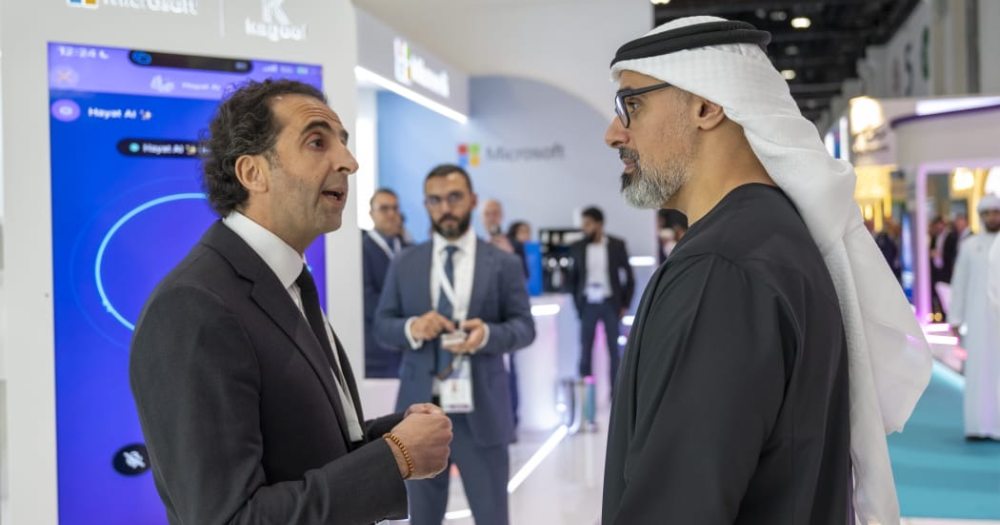Microsoft shows how AI can be an agent of change at ADGHW

When you think of AI in healthcare, the mind often jumps to sci-fi fantasies or sterile tech demos. But during last week's Abu Dhabi Global Health Week, Microsoft made it clear: AI isn't a far-off dream — it's already reshaping how we live, heal, and connect.
At the heart of their showcase was Hayat, a wellness app that's more therapist, nutritionist, and health coach than your average piece of software. "We're bridging data, AI and trust," said Naim Yazbeck, Microsoft UAE's General Manager.
How does it work?
So what's the magic under the hood? Here's a peek:
- Hayat syncs with Apple Health to pull in personal data on physical activity, sleep, and other vitals
- It uses conversational AI (yep, you can talk to it like a friend) to offer support in both Arabic and English
- The app leans on real-deal health metrics to give nudges and suggestions based on your daily inputs
- It includes a natural language search and a voice-based assistant that feels more Siri meets self-care than anything else
What really sets Hayat apart is its focus on mental wellness and personalization. It's not just spitting out generic health tips. It's learning your rhythms and offering thoughtful suggestions. Think of it as a pocket-sized wellness buddy that actually listens.
Why does it matter?
Healthcare isn't just about high-tech hospitals and flashy machinery — it's about people. And people? Well, they're burned out. Doctors are drowning in admin. Patients are lost in the shuffle. That's where Microsoft's AI steps in.
"This empowers everyone across the healthcare journey to collaborate, communicate, and innovate together," Yazbeck explained. The goal isn't to replace the doctor. It's to make life easier for both the folks in white coats and the ones in waiting rooms.
AI like this can:
- Reduce physician burnout by simplifying workflows
- Offer more personalized care and early intervention
- Help people better manage their own health, especially mental well-being
- Expand access in regions where medical resources are stretched thin
And let's not forget — when patients feel heard, outcomes improve. That's just good medicine.
The context
Abu Dhabi Global Health Week wasn't just another industry schmooze-fest. Held at the sprawling ADNEC Centre, it brought together over 15,000 of the world's top thinkers in health and life sciences. That's no small crowd. Microsoft didn't just show up — they showed off.
With thought leaders like Elena Bonfiglioli taking part in key panels, and partners like Kagool (Microsoft's Partner of the Year) standing shoulder to shoulder, the message was loud and clear: the future of healthcare in the UAE is digital, collaborative, and deeply human.
As Kagool's Mo Fayez put it, "The health of nations has long been linked to the wealth of nations." And in Microsoft's hands, AI looks like a new kind of currency — one that trades in empathy, insight, and real-world impact.
💡Did you know?
You can take your DHArab experience to the next level with our Premium Membership.👉 Click here to learn more
🛠️Featured tool
 Easy-Peasy
Easy-Peasy
An all-in-one AI tool offering the ability to build no-code AI Bots, create articles & social media posts, convert text into natural speech in 40+ languages, create and edit images, generate videos, and more.
👉 Click here to learn more


